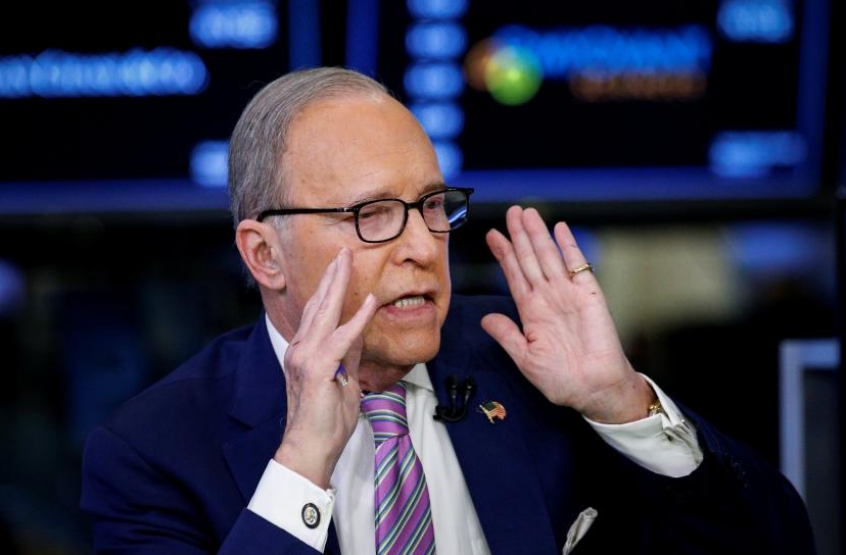
MSNBC host Stephanie Ruhle has issued a public apology for ridiculing the faith of Larry Kudlow, who was recently appointed to be President Donald Trump's top economic aide.
During a discussion about Kudlow's decision to join the Trump administration on Thursday, Ruhle had reportedly taken issue with the appointee's previous statement in which he suggested that he is trusting "God's will."
"If you noticed when Larry Kudlow spoke on CNBC yesterday, he ended by saying, 'However things work out, it will be God's will,'" Ruhle said, prompting co-host Ali Velshi to laugh in response.
"That's an interesting way to talk about being the national economic adviser to the president. God's will?" she added.
Ruhle went on to question whether Kudlow could "represent real data" to the president and appeared to mock the economist for his comment about God again. "Well, as Larry Kudlow says, 'it's God's will,'" Ruhle said, holding up her coffee mug to the screen before Velshi introduced the next segment.
On Saturday, Ruhle took to Twitter to apologize and clarify that she did not mean to offend anyone.
"As a reporter, a mom and a Catholic, I know words matter and I want to clear something up. I meant no offense when discussing Larry Kudlow's WH appointment. I apologize if my comments came off as dismissive of his faith. I would never question another person's believe (sic) in God," she wrote.
Kudlow responded with a short tweet saying: "To @SRuhle : thank you for apology. I accept. Let's move on. See soon."
The White House confirmed last week that Kudlow had accepted the post of National Economic Council director, replacing Gary Cohn, who resigned earlier this month after losing his fight against tariffs on steel and aluminum imports.
Kudlow, who was born Jewish but was baptized as a Catholic in 1997, had previously served as a budget aide during the Reagan administration and was a chief economist at Bear Stearns from 1987 to 1994, He had also informally advised Trump on his taxes and other economic issues during the 2016 presidential campaign.
After Cohn's resignation, Kudlow expressed disappointment with Trump's decision too impose tariffs on steel and aluminum. The president had previously stated that he would welcome disagreement from Kudlow if he picks him for the post.
Following the announcement from the White House, Kudlow spoke about his time working as a senior contributor to CNBC and stated that it was hard to leave the network but he had faith in God's will.
He thanked the network for helping him improve his life after dealing with substance abuse problem and added that his years of being clean and sober was only made possible by "God's grace."













